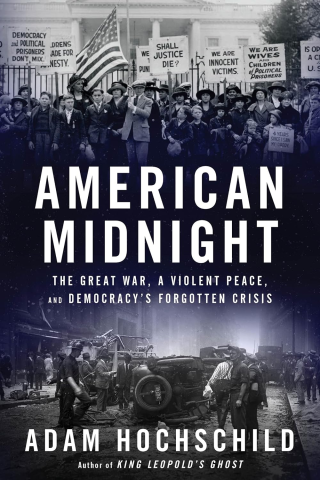Because the Espionage Act is so old and the spate of cases against leakers is so recent, one might think that its use in confrontations with the press is new—that an archaic anti-spy law has been repurposed for the information age. In fact, speech was a target from the law’s earliest days. Judge Hand was well aware of that history.
In 1917, as a forty-five-year-old district judge on the brink of promotion to the appeals court, Hand had heard a lawsuit brought by The Masses, a socialist magazine that the Postmaster General sought to prohibit from being sent through the mail. That, too, was an Espionage Act case. The Postal Service was using provisions against interfering with military enlistment or recruitment during wartime; a recent issue of The Masses contained a cartoon depicting the draft in a dark light and a poem praising antiwar anarchists. Hand ruled that the magazine was within its rights. He was overruled in a matter of months, and didn’t get the expected promotion. That incident helps explain why Hand, despite his renown and the efforts of Oliver Wendell Holmes, Jr., and others, never made it to the Supreme Court. His wife wrote to him in 1918, “It was the Masses decision which had hurt you but dear, I feel just as you do about it. You couldn’t have done differently and it was a fine thing to do.”
Hand was grappling, just as he would in the Heine case two decades later, with a law that, on its face, appeared to be unworkably broad. In his decision, he wondered if one might run afoul of the Espionage Act by praising Quakers. The legislation covers traditional spying but also actions far afield from it. For President Woodrow Wilson, Lebovic writes, the term “espionage” meant “anything that interfered with the war effort.” In practice, the new law was used to suppress socialists and labor unions, as if the Kaiser were behind every demand for fair wages. Eugene V. Debs was convicted under the Espionage Act after he gave a speech in which he told the people in the crowd that they didn’t deserve to be “cannon fodder.” He ran for President from prison, a fact that has become surprisingly relevant this election cycle.

